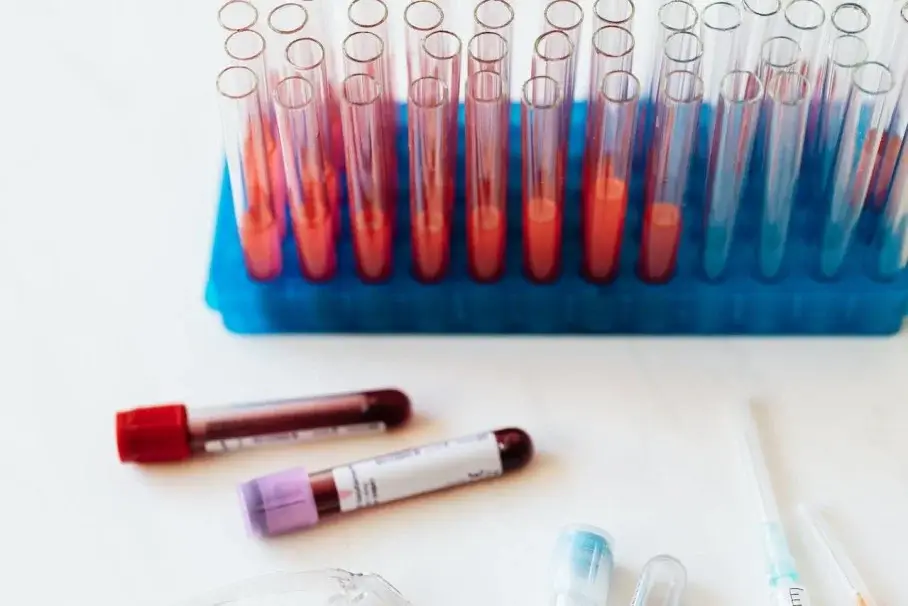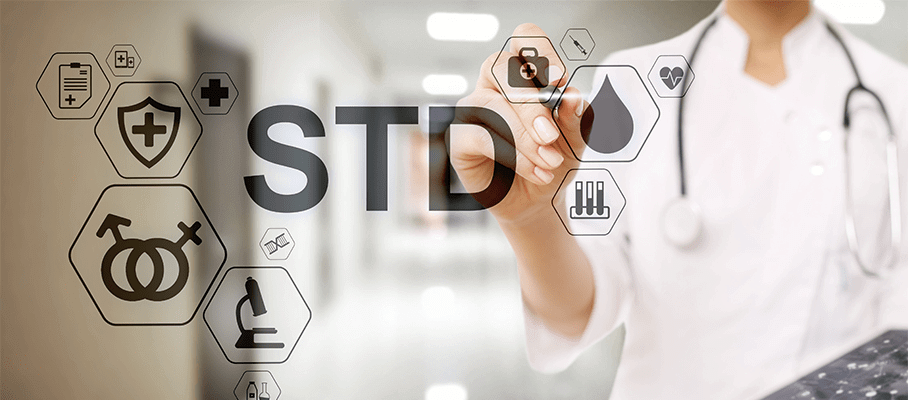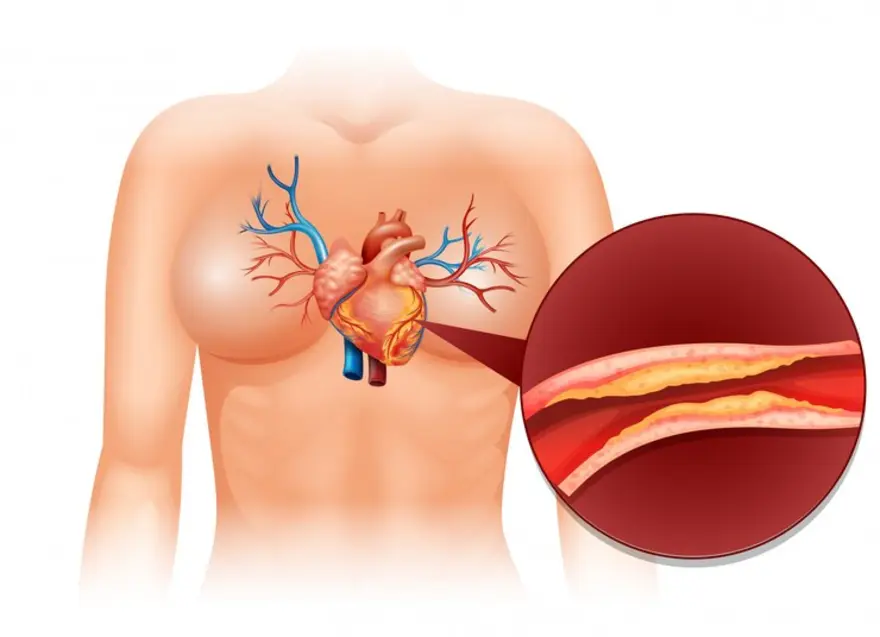SHBG test
SHBG Test: Purpose, & Implications
Understanding health conditions and diagnostic tests can be overwhelming, especially when exploring the nuances of Sex Hormone Binding Globulin (SHBG). Through this test, healthcare professionals assess SHBG levels, providing crucial insights into conditions like testosterone deficiency or excess, thus helping in the management of numerous health issues. Understanding the role of SHBG and its implications on your health can sometimes be a daunting task. Therefore, having a deeper understanding of the SHBG test could help in comprehending and managing various hormonal conditions effectively. What is an SHBG blood test? Sex hormone-binding globulin (SHBG) is a protein produced by the liver that plays a vital role in the transport and regulation of sex hormones, primarily testosterone and oestrogen. The SHBG blood test measures the level of this protein in the bloodstream and compares it to the SHBG normal range. SHBG is crucial in modulating the bioavailability of sex hormones. When these hormones are bound to SHBG, they're less available to tissues and cells, impacting their physiological effects. High levels of SHBG may result in reduced availability of free testosterone or oestrogen, potentially leading to symptoms associated with hormone imbalances. SHBG test is often used in various medical contexts: Assessment of Hormone Imbalances: SHBG levels can provide insights into conditions related to hormonal imbalances, such as polycystic ovary syndrome (PCOS), hypogonadism, or hirsutism, aiding in diagnosis and treatment planning. Evaluation of Androgen-related Disorders: In conditions like hyperthyroidism or liver disease, SHBG levels might be affected, influencing the total levels of bound sex hormones. Monitoring Hormone Replacement Therapy: In transgender individuals undergoing hormone replacement therapy (HRT), monitoring SHBG levels can help in determining treatment efficacy and dosage adjustments. Interpreting SHBG levels requires consideration of other hormone levels, clinical symptoms, and individual health circumstances for a comprehensive assessment. Understanding SHBG's role in hormone regulation is pivotal for diagnosing and managing various conditions related to sex hormone imbalances. What is it used for? Sex Hormone-binding Globulin (SHBG) plays a crucial role in regulating the bioavailability of sex hormones, primarily testosterone and oestrogen. The SHBG test measures the level of this protein in the blood, offering insights into hormonal balance and various health conditions. Diagnosing Hormone-related Conditions: Elevated or reduced SHBG levels can indicate hormonal imbalances. High levels of SHBG lead to reduced availability of free testosterone or oestrogen, potentially contributing to high SHBG symptoms such as infertility, irregular menstrual cycles, or androgen excess. Understanding Endocrine Disorders: Assessing SHBG levels is pivotal in evaluating conditions like polycystic ovary syndrome (PCOS), hypogonadism, hirsutism, or hyperthyroidism. These conditions often affect SHBG levels and subsequently impact the total availability of bound sex hormones in the body. Monitoring Hormone Therapy: SHBG testing is crucial in monitoring hormone replacement therapy (HRT) in transgender individuals or menopausal women. Evaluating SHBG levels helps in adjusting treatment regimens and ensuring the appropriate dosage of hormones. Why do I need an SHBG blood test? An SHBG blood test is typically used to assess various hormonal conditions in both men and women. It aids in evaluating hormone imbalances associated with testosterone and oestrogen. For men, the SHBG test can help diagnose low testosterone levels. In women, it may assist in identifying conditions related to excess testosterone. Additionally, monitoring SHBG levels is important for understanding hormonal imbalances such as polycystic ovary syndrome (PCOS) or hirsutism. Evaluating SHBG levels provides insights into hormone-related disorders, guiding the diagnosis and management of various conditions affecting hormone regulation. What happens during an SHBG blood test? During an SHBG blood test, a healthcare professional will draw blood from a vein, typically in the arm. The blood sample is then sent to a laboratory for analysis. The test measures the concentration of sex hormone-binding globulin (SHBG) in the blood. SHBG is a protein that binds to sex hormones like testosterone and oestrogen, regulating their bioavailability in the body. SHBG blood test involves minimal discomfort, similar to other standard blood tests, which may include a momentary pinch when the needle is inserted. Results are typically available within a few days. The findings help assess hormone levels and any potential imbalances, guiding the diagnosis and treatment of conditions related to sex hormone irregularities such as low testosterone in men or conditions related to excess testosterone in women. Are there any risks to the test? The SHBG blood test is a standard blood draw with minimal risks. experience mild discomfort or a pricking sensation when blood is drawn, and slight bleeding may occur at the puncture site. Serious side effects are rare but could include allergic reactions or, uncommonly, conditions like itching, hives, or muscle and joint pain. What do the results mean? Sex Hormone-Binding Globulin (SHBG) test results measure the quantity of SHBG in the bloodstream, offering insight into hormone levels. High SHBG levels generally signify reduced free sex hormone amounts, while SHBG levels in females indicate increased available sex hormones. High SHBG levels might lead to symptoms associated with low sex hormone levels, such as decreased libido, reduced energy, and in men, potential erectile dysfunction. This condition may also contribute to hormonal imbalances in females, causing irregular menstrual cycles or other menstrual disturbances. It can also impact hormone therapy efficacy or play a role in issues related to infertility. Low SHBG levels might indicate excess free sex hormones, leading to symptoms like excessive body hair growth in women, acne, or in men, symptoms of increased androgens. Low SHBG may also be associated with conditions like polycystic ovary syndrome (PCOS) in females and could indicate a need for evaluation and potential treatment to manage the underlying hormonal imbalances or associated health issues. Physicians interpret SHBG levels in the context of the individual's symptoms and other laboratory test results to guide diagnosis and treatment plans. How to Increase SHBG? To increase Sex Hormone-binding Globulin (SHBG), engage in regular exercise, as studies have shown it to be an effective method. How to lower SBHG? To lower SHBG, consider dietary changes such as replacing simple carbs with complex carbs, eating cruciferous vegetables, regularly exercising, and using supplements like inositol, spearmint, liquorice, and white peony. Conclusion The SHBG blood test is a standard procedure involving minimal risks and is essential for assessing hormonal imbalances. The results helps in diagnosing conditions related to hormone irregularities in both men and women, guiding appropriate treatments. Metropolis Labs, specialising in comprehensive pathology services, including blood testing, offers accurate and efficient blood testing services. With a team of skilled technicians for at-home sample collection Metropolis Labs ensures precise and reliable results, enabling individuals to manage their health effectively. These tests, along with advanced technology for result dissemination via email and our user-friendly TruHealth app, make Metropolis a trusted name when it comes to medical testing.
Sexual Health | Importance and Testing Insights
Human sexuality is the very pillar of human society and one cannot assume life without it, however it continues to remain a taboo across societies, cultures, religion and borders. Even in this age and times, discussion on sexual health and sexuality continues to remain incredibly private and awkward. It is not untrue to say that even with the best of efforts, there exists a clear lack of understanding and guidance so much so that even parents and schools refrain from discussing the topic. It has led to spread of misinformation especially among the young and vulnerable. What does sexual health mean? Ever since WHO first defined sexual health in 1975, it has been continuously modified to provide a better understanding of challenges faced and to guide a desired approach. The most widely accepted definition however is the one provided by WHO in 2002, it stated “Sexual health is a state of physical, emotional, mental, and social well-being in relation to sexuality; it is not merely the absence of disease, dysfunction, or infirmity”. In simpler terms, it ensures a person enjoys a satisfying sexual life with a freedom to choose safe and effective contraceptive method which ensures protection from STD’s as well as empowers them the freedom to decide when to conceive providing better family planning. The path to better sexual health starts with better recognition of underlying issues. Here, we have covered top tests for sexual health-related problems. SHBG test: SHBG stands for sex-hormone binding globulin, that is a protein made by your liver. As the name suggests, it binds to 3 sex hormones (estrogen, dihydrotestosterone (DHT), and testosterone) found in both men and women and help carry these throughout your blood to the body tissues. Hence, SHBG controls the testosterone levels that your body tissues can use. Too little testosterone in men and too much testosterone in women can cause problems. Is it better to have high or low SHBG? You should have optimum levels. If your SHBG is higher, the fewer sex hormones are available to the body. On the other hand, if SHBG is low, sex hormones are available to the body in abundance which can give certain physical symptoms. For men, SHBG is mostly ordered if a person experiences symptoms of low testosterone levels like low sex drive or fertility issues. For women, it's mostly ordered if there are symptoms of high testosterone levels like excessive body hair, acne, or fertility problems. Book your SHBG blood test here. Testosterone blood test: Testosterone is a male sex hormone produced from testis. Low blood levels of testosterone causes male sex problems with decreased libido, subnormal muscle mass, increases body fat content and decreased bone mass. So diagnosing low testosterone levels and treatment is very important. For evaluation of male sexual health disorders like erectile dysfunction (ED), premature ejaculation, loss of libido evaluating physician may require detailed history along with physical examination and a wide array of blood investigations to measure levels of blood sugar, cholesterol, thyroid hormones and sex hormone levels in males which includes testosterone test and SHBG test. Diminished testosterone levels either alone or in association with excessive SHBG may be a cause of sexual problems. Apart from these physicians may order penile blood flow ultrasound after medications to induce penile erection. Tests for Sexually transmitted infections (STDs): HIV and hepatitis B and C are infections that can spread from having unprotected sex with infected individual. Between 5 and 10% of people living with HIV also have hepatitis B virus, known as co-infection. Hepatitis B and C along with testing for HIV can be done usually as a part of a single viral marker test at a nominal price. Spectrum of sexual health diseases is quite wide! As with other non-communicable diseases, the incidence and prevalence of sexual health disorders are on a rise attributed to lifestyle modifications, smoking and alcohol consumption, diabetes mellitus, psychiatric disorders and heart conditions. Sexual health disorders include but are not limited to sexually transmitted infections like Bacterial vaginosis, chlamydia, gonorrhoea, Genital herpes, hepatitis, Human Papilloma virus (HPV), HIV/AIDS and syphilis. The spectrum of sexual disorder also includes erectile dysfunction(ED), loss of libido, nocturnal emission, premature ejaculation, impotency and infertility in males. For females it includes lack of sexual arousal, decrease libido, excessive dryness and discomfort. In addition to it women may also suffer from unintended pregnancies, inadequate spacing and complications associated with child births. How to ensure a healthy sexually active life? Any sexually active adult should embrace healthy sexual practices, maintain basic hygiene and use proper contraceptives. One should undergo regular sexual health check-up and avoid unprotected intercourse. The risk of sexually transmitted infections is said to increase with Multiple sexual partners Unprotected intercourse including vaginal, oral or anal intercourse Partners having history of STD’s Partners having history of multiple sexual partners Drug abusers with history of needles sharing The prevention of STDs involve practising safe sexual practices which involve use of condoms each time you have sex. Make sure to use a condom for the entirety of the act. Although condoms aren’t 100% effective by themselves, they remain to be the most effective and convenient method for prevention of STDs when used properly. Apart from it one should ensure thorough washing of genitals before and after intercourse, maintain complete vaccination for void being under the influence of alcohol or drugs as studies show they often lead to unsafe sex. Even though you practice all these, always be vigilant to suspect an STD when you see a genital sore or rash, discharge and swelling. Avoid sex with your partner on suspicion of an STD and ensure getting tested before resuming sexual activity. Although no unprotected sex is fully safe but it’s considered relatively safe only once at least 6 months have lapsed since you both tested negative for STD’s. Ensure testing for it when you get into a new sexual relationship. Efforts to destigmatise the talks regarding sexual health and dysfunction, sexually transmitted disease (STD’s), safe contraceptive methods and teenage pregnancy are the need of hour.
 Home Visit
Home Visit Upload
Upload
















 WhatsApp
WhatsApp